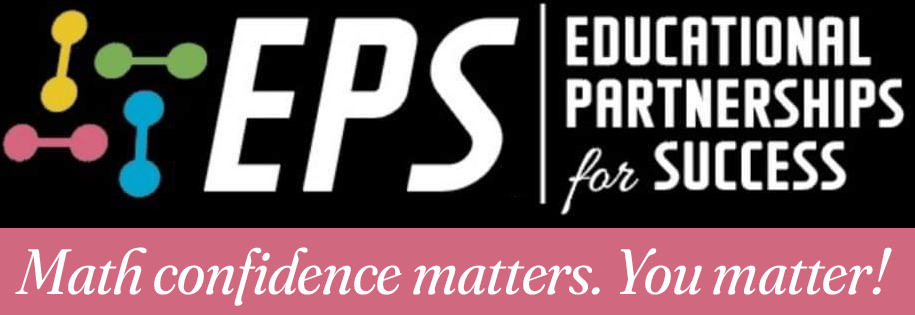Did you know that the subconscious “covers” about 88% of our mind, which we do not actively control? Meanwhile, the conscious mind “covers” 12% over which we have control. Before we get hung up on actual percentages, here’s the point—a great deal of what’s going on in our mind is subconscious. Our conscious thoughts feed into the subconscious with practice or when done repeatedly, and especially when feelings are associated with it. If our thoughts are good, it can have a positive effect. On the other hand, when our fears and worries get into our subconscious, we develop anxious thoughts.
What does this mean if you have to take a math course and you are feeling anxious about it? Perhaps, it would help if you pay more attention to what you allow in your thought process. If you tell yourself you “suck” at math or cannot do math, it will be so. After all, as you tell yourself you cannot do math, you avoid doing it, which does not help you develop your math skill and confidence. How can you be good at something when you do not practice it? Just like learning any new skill (cooking, driving, swimming, etc.), we consciously practice it repeatedly until it becomes automatic or gets imbedded in our subconscious. Once you master something, you need not think long and hard about it.
Hate math or dislike math? Let me ask: Does it help you to think that way? Perhaps you struggled with math comprehension because you “learned” what you were taught without giving it much thought. Perhaps you have had a bad experience with a teacher, were embarrassed at the board, shamed by your own family, etc. Those are real experiences shared by my students, which are very upsetting, if not traumatic. As much as you think the experience no longer bothers you, the negative feeling that persisted has taken root in your subconscious mind, manifested in your anxiety or dislike for math, which blocks you from learning it. When you do not even try to understand the math process, it results in lack of confidence and competence until it becomes a vicious cycle of math hatred or avoidance.
We are all born with the capacity to learn. You can certainly do the math you need. It can be done. It just takes effort, a determined focus, and being intentional about learning. It is about having good metacognition. Metacognition (often associated with John Flavell) refers to our awareness of how well we truly understand something. It involves reflection (thinking about what we know) and self-regulation (managing what we know or how we go about learning). Instead of just saying, “I dislike math,” ask yourself “What is it about math that I dislike or makes me anxious, and what can I do to change that?”
Just like math, metacognition (also referred to as “thinking about thinking”) is a skill so you can learn it! As you become more skilled at using metacognitive strategies (i.e., summarizing, prediction, thinking aloud), you will gain confidence and become more independent as a learner. Here are questions to ask yourself with each exam or difficulty you may encounter and to help develop your metacognition:
- What is difficult for me right now in this class? (What is going on?)
- Why is it challenging or difficult? (Why do you think that?)
- How do I plan to resolve this difficulty? (What now?)
If you would take the time to reflect on these questions and seek help as needed, you are on track for lifelong learning. There is hope if you believe you are capable of learning. A three-time Olympic champion in track-and-field, Gail Devers said, “Every accomplishment starts with a decision to try.” Once you do, make a conscious decision to work hard, ask questions, and take charge of your thoughts and actions. You may not be a math genius, but you can certainly work hard to grow in your competence and confidence in math, and in whatever else you wish to learn. Barbara Oakley, in Reframe How You Think About Learning said, “It is possible to change and become accomplished in areas that you don’t think you can do very well at.” Go ahead and give math learning a try.
